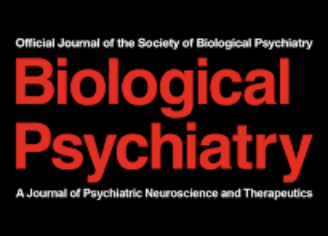Validity of the executive function theory of attention-deficit/hyperactivity disorder: a meta-analytic review
Does ADHD arise from executive function deficits?
Erik G Willcutt , Alysa E Doyle, Joel T Nigg, Stephen V Faraone, Bruce F Pennington

Background
Despite the many studies conducted on ADHD, we still do not know precisely what causes it.
One theory that some experts have proposed is that ADHD is caused by deficits in your brain’s executive function.
Executive function is the senior management of your brain. These functions help you make a plan, prioritize what you need to do, and execute a plan.
Your executive function is responsible for focusing and keeping you from getting distracted.
Just from the definition alone, you can tell that there is a significant overlap between ADHD symptoms and executive function deficits.
One of the most prominent neuropsychologic theories of attention-deficit/hyperactivity disorder (ADHD) suggests that its symptoms arise from a primary deficit in executive functions (EF), defined as neurocognitive processes that maintain an appropriate problem-solving set to attain a lat...
Method
To learn more about the link between executive function and ADHD, researchers analyzed 83 studies on executive function and ADHD. These 83 studies covered 3,734 people with ADHD and 2,969 people without ADHD. They combined the data in a meta-analysis to get a clearer picture of the relationship.
To examine the validity of the EF theory, we conducted a meta-analysis of 83 studies that administered EF measures to groups with ADHD (total N = 3734) and without ADHD (N = 2969).
Results
As expected, researchers found that people with ADHD have significant deficits in their executive function.
The strongest deficits were in a person’s ability to inhibit themselves, vigilance, planning, and working memory.
These are generally the skills that we need to stay focused on a task, something that people with ADHD can have trouble doing.
They found these weaknesses in studies that looked at patients in the hospital and individuals in the community.
These differences were not explained by how intelligent someone was or by their grades in school, suggesting that ADHD may cause these differences.
Groups with ADHD exhibited significant impairment on all EF tasks. Effect sizes for all measures fell in the medium range (.46-.69), but the strongest and most consistent effects were obtained on measures of response inhibition, vigilance, working memory, and planning. Weaknesses in EF w...
Discussion
This study confirmed that ADHD is linked with deficits or weaknesses in executive function.
These links are consistent with what we know about ADHD symptoms.
For example, many of the attention deficit symptoms of ADHD include difficulties with focus, remembering key details, and following through on longer, more complex tasks.
These are all symptoms that are related to executive function.
However, the deficits were not universal. Not everyone had them, and the links weren’t always solid.
Based on this finding, the authors of the study believe that executive function by itself is not enough to cause all cases of ADHD.
They concluded that executive function is just one part of a much larger answer to what causes ADHD.
ADHD is associated with significant weaknesses in several key EF domains. However, moderate effect sizes and lack of universality of EF deficits among individuals with ADHD suggest that EF weaknesses are neither necessary nor sufficient to cause all cases of ADHD. Difficulties with EF ap...